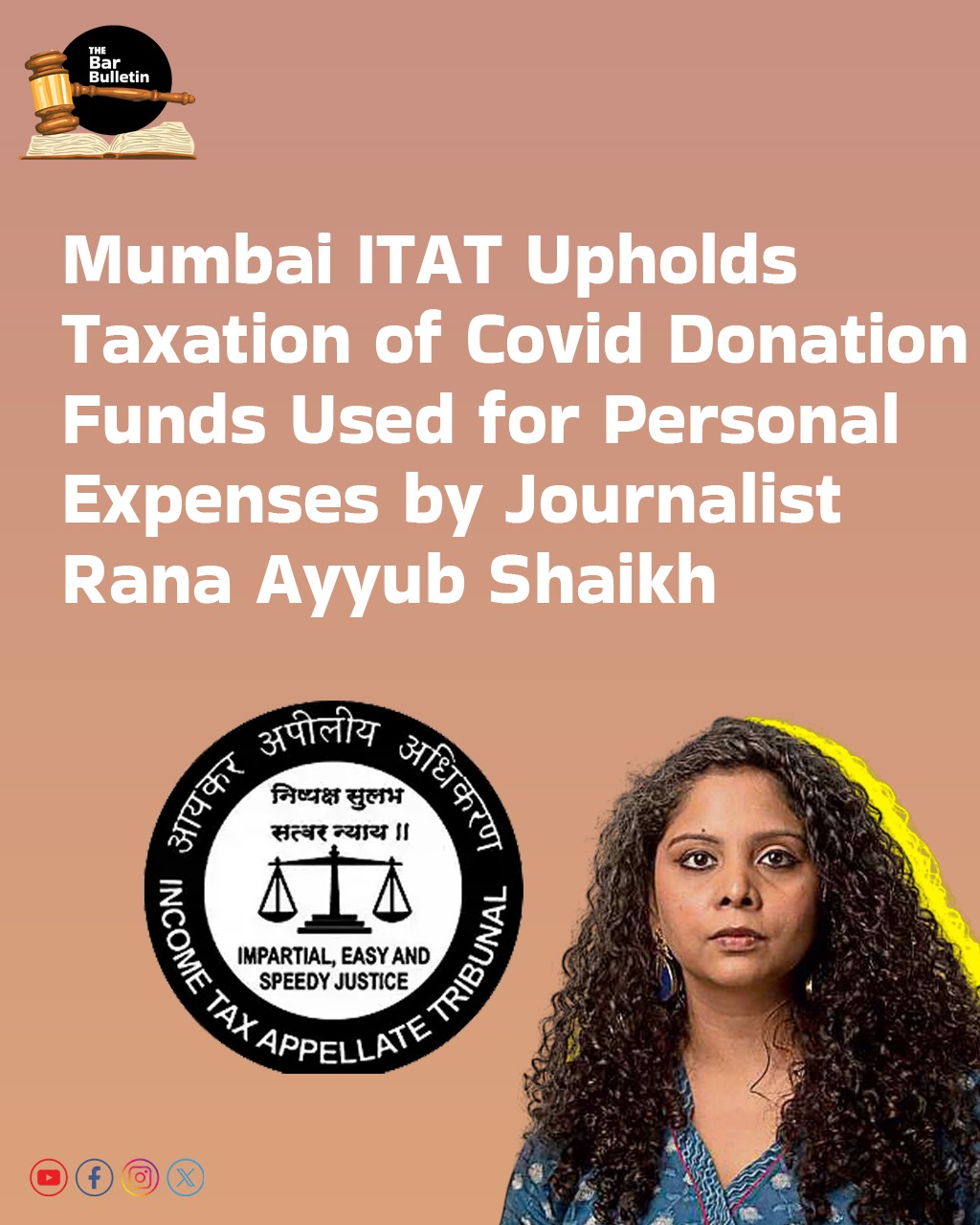The Mumbai Income Tax Appellate Tribunal (ITAT) upheld the Income Tax Department’s decision to treat Covid-related donations received by journalist Rana Ayyub Shaikh as taxable income under Section 56(2)(x) of the Income Tax Act, 1961.
The Tribunal, comprising Vice President Saktijit Dey and Accountant Member Narendra Kumar Billaiya, found that donations collected by the appellant through three separate fundraising campaigns on the Ketto platform were credited to her personal bank account and those of her family members, without maintaining any separate books of account. These funds were subsequently used for personal expenses and investments, including fixed deposits (FDRs), contrary to the stated charitable intent of the campaigns.
Referring to Section 3(1)(h) of the Foreign Contribution (Regulation) Act, 2010, which prohibits journalists (including correspondents, columnists, cartoonists, and editors) from receiving foreign contributions, the Tribunal held that Ms. Ayyub violated the law by accepting such funds directly into her personal account and through accounts of her relatives.
The Bench noted two major lapses:
- Receipt of foreign contributions in violation of the FCRA provisions; and
- Diversion of donation proceeds for purposes unrelated to the intended charitable objectives, including personal expenditures and investments.
The Tribunal observed that despite having collected significant funds, the appellant had unutilized amounts exceeding ₹2.4 crore for over a year, portions of which were withdrawn for personal use and invested in fixed deposits. It was only after scrutiny by the Tax Department that Ms. Ayyub offered the entire amount as “income from other sources.”
The Tribunal further rejected the appellant’s argument that the funds were reserved for building a hospital—an objective never disclosed during the fundraising campaigns. It concluded that the lack of a legal obligation to return the funds, coupled with their personal use, made the receipts taxable under Section 56(2)(x).
Affirming the assessment order, the ITAT found no fault with the Revenue Department’s treatment of the donations as taxable income and questioned the bona fides of the appellant’s claim that the funds were intended for charitable purposes.
Appearances:
Appellant/Assesse: Advocates P.J. Pardiwala & Ritu Punjabi
Respondent/Revenue: Advocate Ashok Kumar Ambastha.
![]()



